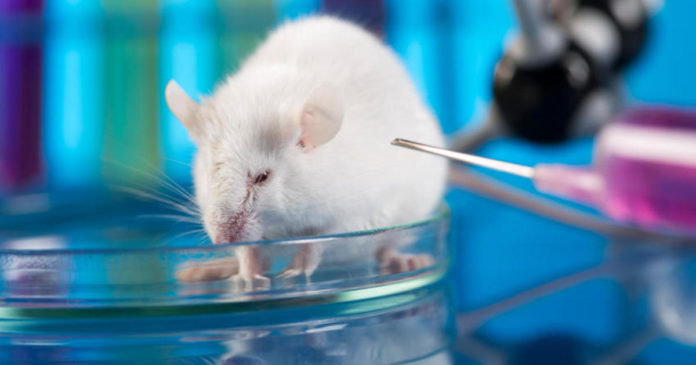Researchers who eliminated HIV from mice say their results are an important advance in efforts to develop a cure for HIV infection in people.
研究人员近日清除了小鼠体内的艾滋病毒,并表示这项研究结果是在研究治愈人类艾滋病毒感染方面取得的重要进展。
This is the first time that the AIDS-causing virus has been eradicated from the genomes of living animals, according to the authors of the study.
研究报告的作者称,这是人类首次从活体动物的基因组中完全消除艾滋病毒。
"Our study shows that treatment to suppress HIV replication and gene editing therapy, when given sequentially, can eliminate HIV from cells and organs of infected animals," said co-senior author Kamel Khalili, professor and chair of neuroscience at Temple University in Philadelphia.
“我们的研究表明,循序进行抑制艾滋病毒复制的治疗和基因编辑治疗可以消除被感染动物体内细胞和器官中的艾滋病毒”,费城天普大学神经科学教授兼主任、论文资深合著者卡迈勒·卡利利说。
The work was a collaboration with researchers at the University of Nebraska Medical Center.
这项工作是与内布拉斯加大学医学中心的研究人员合作完成的。
Current HIV treatment uses antiretroviral therapy (ART), which suppresses HIV replication but does not eliminate the virus from the body. ART is not a cure for HIV and requires lifelong use.
目前的艾滋病毒治疗使用抗逆转录病毒疗法,可以抑制艾滋病毒的复制,但无法将病毒从体内消除。抗逆转录病毒疗法不能治愈艾滋病毒,需要终生使用。

In this study, the researchers used a gene editing system called CRISPR-Cas9 to remove large fragments of HIV DNA from infected cells, along with a new drug regimen called long-acting slow-effective release (LASER) ART.
在这项研究中,研究人员使用了一种名为CRISPR-Cas9的基因编辑系统,从受感染的细胞中去除较大的艾滋病毒脱氧核糖核酸片段,同时使用了一种名为长效缓释(激光)的新药疗法。
In this therapy, antiretroviral drugs are placed in nanocrystals that travel to tissues where HIV is likely to be lying dormant. The nanocrystals are stored within cells for weeks and slowly release the drugs.
在治疗过程中,抗逆转录病毒药物被放置在纳米晶体中,并被运送到可能潜伏着艾滋病毒的组织。纳米晶体被储存在细胞内数周,缓慢释放药物。
Mice with HIV were first treated with LASER ART and then with gene editing. This approach eliminated HIV DNA from about one-third of the mice. However, research on animals may not produce the same results in humans.
研究人员首先用激光抗逆转录病毒疗法治疗感染艾滋病毒的小鼠,之后使用基因编辑技术。这种治疗方法消除了约三分之一小鼠体内的艾滋病毒脱氧核糖核酸。然而,对动物的研究可能不会在人类身上达到相同的效果。
"The big message of this work is that it takes both CRISPR-Cas9 and virus suppression through a method such as LASER ART, administered together, to produce a cure for HIV infection," Khalili said in a university news release.
卡利利在一份大学新闻稿中说:“这一研究的重要信息是,它需要使用CRISPR-Cas9基因编辑,并通过激光抗逆转录病毒疗法等方法抑制病毒,两种方法一起使用,才能治愈艾滋病毒感染。”
"We now have a clear path to move ahead to trials in nonhuman primates and possibly clinical trials in human patients within the year," added Khalili, who also directs Temple's neurovirology center and its neuroAIDS center.
“现在我们有一条清晰的道路,我们可以在年内对灵长类动物进行试验,也可能对艾滋病感染者进行临床试验”,同时主管天普大学神经病毒学中心和神经艾滋病中心的卡利利补充说。
The results were published online July 2 in the journal Nature Communications.
该研究结果于7月2日发表在《自然通讯》杂志网络版上。












